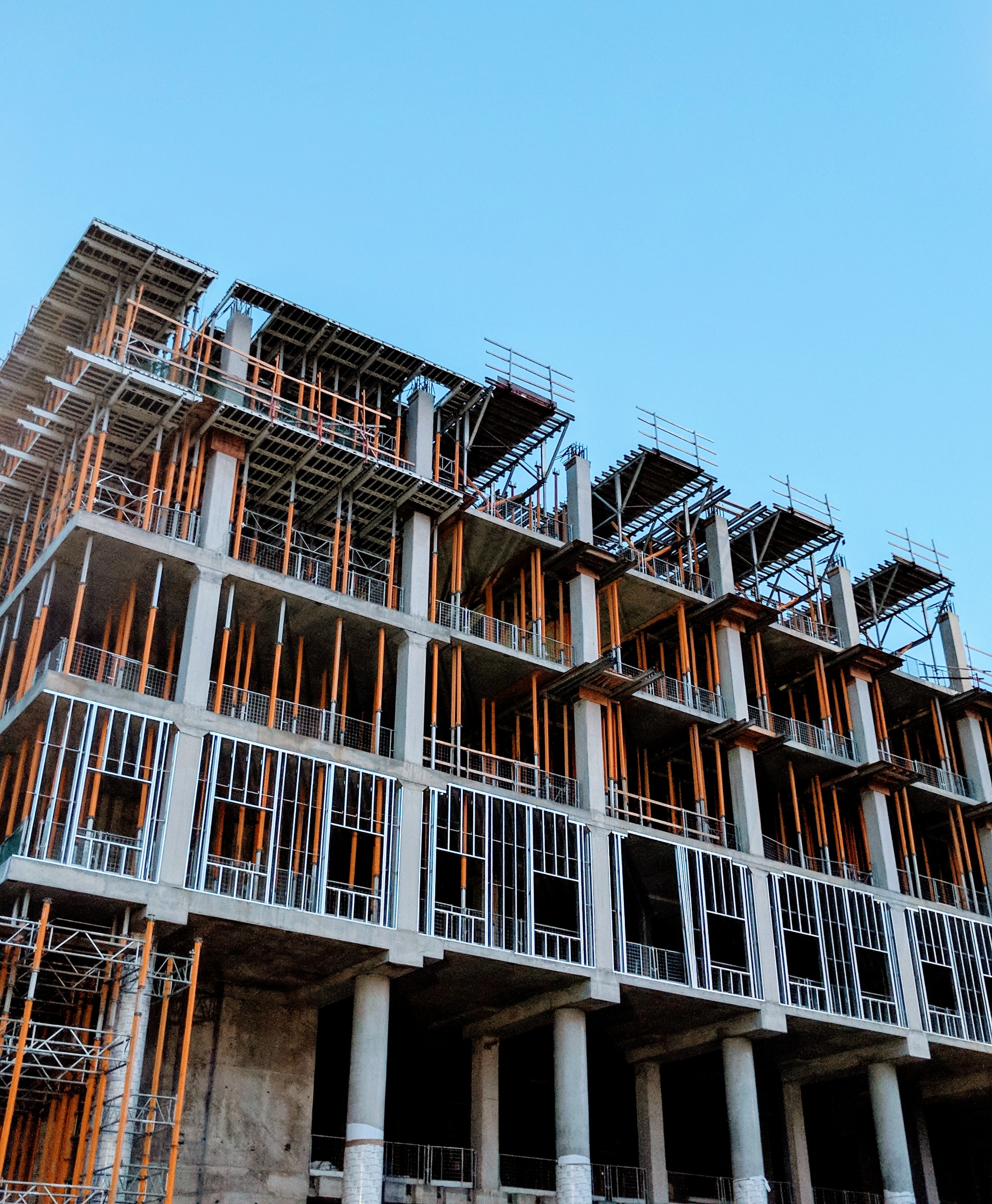

By David M. Greenwald
Executive Editor
There is a growing sense that CEQA has been weaponized as a tool to stop new housing projects.
It is probably not a surprise that in the view of Senator Scott Wiener he believes that CEQA must be fixed.
In March, Senator Wiener, responding to a court decision out of Berkeley, said, “College students, according to the court are pollution. And so they have to be mitigated, as if they were like tailpipe, like exhaust or like fumes from a refinery.”
Wiener explained, “That’s literally how the California Court of Appeal classified college students who are just trying to get an education at UC Berkeley and be part of the middle class and yet they’re pollution. That’s how far CEQA has fallen from what it was intended to do, which was to actually protect the environment.”
CEQA, he said, has an important function along with other environmental law, as “there are some important things that it does to make sure we’re not putting all sorts of highly polluting industrial or oil refinery uses in the people’s neighborhoods.”
He said, “But CEQA has been… weaponized often by NIMBYs who don’t want new housing or bike lanes or bus lines in their neighborhood. They’re entitled to have that opinion, but they should not be allowed to use an environmental law to stop environmentally sustainable development.”
It’s not just Senator Wiener. Senator Skinner introduced SB 439, hoping that it would spur the creation of more housing by limiting the ability of opponents to file frivolous lawsuits under CEQA.
In an op-ed this week Tracy Hernandez and Jim Wunderman argued that “the balance between advancing projects critical to California’s future and environmental protection under the California Environmental Quality Act has been lost.”
They note that “like so many other slow-motion disasters that have befallen us, the warning signs have been unmistakably clear. And just as often, we have ignored them, denied them and been slow to act.”
They continue, “For all its good intentions and good outcomes, the California Environmental Quality Act, or CEQA, has been increasingly exploited and perverted to slow or block everything from bike lanes and solar installations to affordable infill housing and homeless shelters.”
Like many of the critiques of CEQA, they cite numerous examples where CEQA is being used to block housing project—reasons that “have little to do with protecting our environment.”
“What will it take to finally stir action?” they ask.
That’s a key question. We have seen a pattern. An outrageous example of CEQA abuse comes up, most reasonable voices are outraged, legislators like Senators Wiener and Skinner—and others—propose legislation. Maybe even Governor Newsom weighs in. And at the end of the day, nothing happens.
The example cited by Hernandez and Wunderman is again the CEQA lawsuit over student housing in Berkeley.
They point out, “Some thought this was the final straw, that this would be the inflection point where policy makers would finally act to reform and update CEQA to reflect the times we live in and the serious challenges we face.”
After all, they argue, “How could a law designed to protect our environment against polluters now be used to deny students from attending a university that is the fountainhead of our innovation economy?”
Once again, Governor Newsom called this a travesty and called for reform.
He called the CEQA process “clearly broken,” noting that “a few wealthy Berkeley homeowners” have the ability through the law and litigation to “block desperately needed student housing for years and even decades.”
He said, “California cannot afford to be held hostage by NIMBYs who weaponize CEQA to block student and affordable housing.”
The governor continued, “This selfish mindset is driving up housing prices, and making our state less affordable.” He said, “The law needs to change, and I am committed to working with lawmakers this year to making more changes so our state can build the housing we desperately need.”
Quickly the legislators passed “a quick and narrow fix and pledged to do more.”
As the op-ed points out, “Like a litany of one-off CEQA exemptions legislators have approved over the years for special projects to avoid the real and difficult work of comprehensive reform. Newspaper editorials almost universally have called for reform. Government oversight agency the Little Hoover Commission is holding hearings on CEQA reform, and we’re hopeful it will produce meaningful and actionable recommendations.”
But as Hernandez and Wunderman point out: “Meanwhile, our housing crisis remains, our homelessness crisis worsens, our infrastructure crumbles and our economy and quality of life diminish.”
And yet, what is the chance there is actually meaningful change?
They point out, “Ironically, the environmental impacts of CEQA’s unintended consequences are also mounting. California has seen its population decline by 500,000 over the past two years, largely due to people fleeing high housing costs from a housing shortage made demonstrably worse by CEQA obstruction. And many of those people are going to states like Texas where carbon emissions are more than twice as high as California.”
Further, “Those who can’t afford to leave, many with lower incomes or from communities of color, are forced to pay exorbitant rents and denied the opportunity of homeownership.”
This is the point I keep making over and over again—actions designed to protect the environment are forcing people into decisions that actually harm the environment.
Blocking housing doesn’t protect the environment in most cases, it simply relocates the project to another location where people are uprooted and they are forced to go to areas with much more lax environmental regulations or worse yet—to commute.
Like many, Hernandez and Wunderman believe we know what the solutions are.
“The failure to reform CEQA is not for a lack of knowing what the solutions are,” they write. “Where housing and other projects meet accepted and approved building and other local and professional standards, there should be no CEQA review. Strict limits should be placed on who and what criteria can be used to challenge projects under CEQA.”
They conclude: “Equal or greater priority should be given to advancing housing and other infrastructure projects critical to our state’s future as ensuring environmental protection. By almost any measure, that balance has been lost.”







There is a growing sense (no pun intended) that the state has declared war on its own cities, while simultaneously and purposefully ignoring the underlying causes of growth.
You can see evidence of the latter, in the “hand-wringing” that’s going on regarding the net loss of 500,000 of the state’s residents over the last 3 years. (While also not adjusting RHNA requirements downward, in cities experiencing a loss of population.)
Simply put, these legislators work for the interests which helped them get elected in the first place. And they’re confident-enough to take on their own constituents, as a result. Unfortunately for these interests and their political allies, it’s not working out too well for them. (This will become increasingly obvious, as well.)
Yup Ron, follow the money.
Your premise is way off base. Unions have been a barrier not a facilitator of housing.
See this recent article in CalMatters: https://calmatters.org/housing/2023/04/california-housing-law-union-dispute-2/
This has not been driven by union money.
Oh, so those aren’t union members standing all around Senator Wiener in the other article this morning about the passage of SB4 and SB423?
Did you read the article? It took a long time to get those unions to sign on – years in fact, here’s one from two years ago, where unions were blocking the efforts. This is not about unions being the driver for this legislation, the announcement was made because unions have been barriers. You have this completely backwards.
To be fair, shall we also follow the money when it comes to Republicans in the State Legislature? It works both ways.
To be fair, in California Republicans don’t have the power to push anything through. It’s all about Democrats.
There is a possibility of bipartisan bills, but yes, I generally think this is on the Democrats
In regard to the Davis city council, it seems to me that they either have to join with those concerned about the state’s mandates and constant attacks on city control (e.g., as expressed by the League of California Cities), OR they have to support it (and not rely upon anyone but themselves to address RHNA requirements going forward).
So far, they’ve done neither one.
Actually, there is a “third” choice – and it seems to be the one that the council has chosen:
Support the state’s mandates (without specifically acknowledging it), and create a situation in which voters are told to approve sprawl, “or else”. Perhaps also weakening or eliminating Measure J in the process, which may also be their goal.
Of course, it may not weaken Measure J in the manner in which they envision. For example, it may result in the subsequent elimination of baseline features and development agreements (perhaps even CEQA analysis at some point), in regard to any proposal under consideration by voters. Making it even harder to convince voters to vote for a proposal.
Conversely, it doesn’t seem likely that the state or courts will step in and “force” Davis to annex farmland.
So the outcome may indeed be amusing.